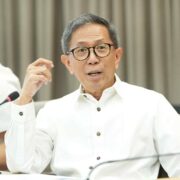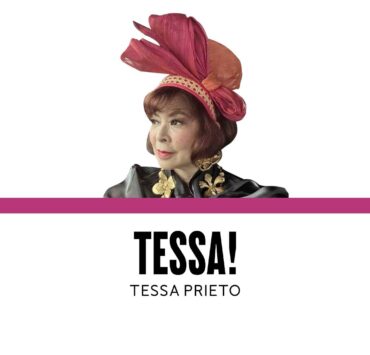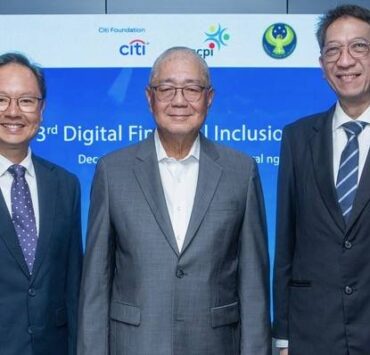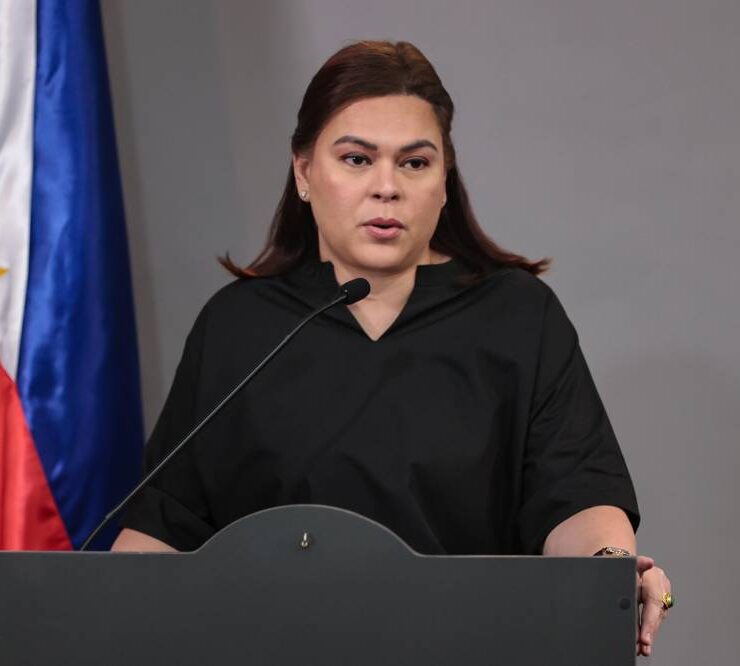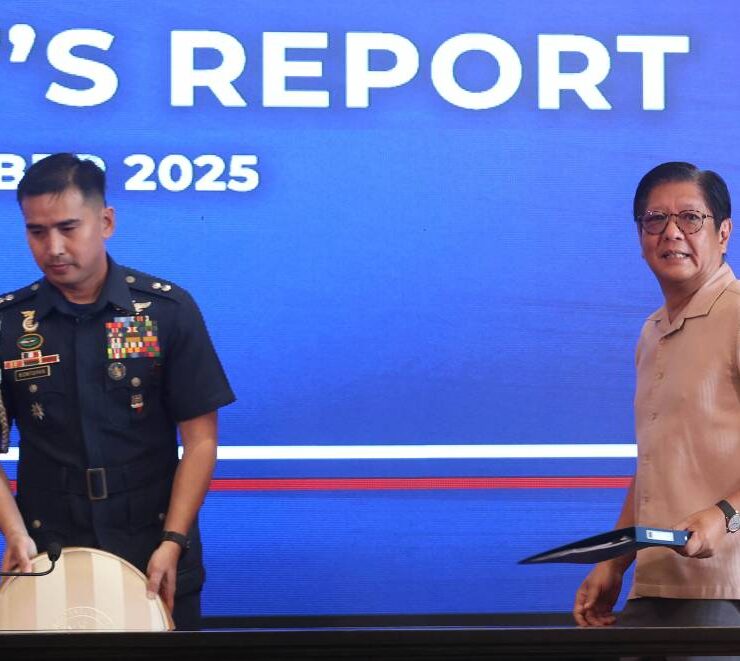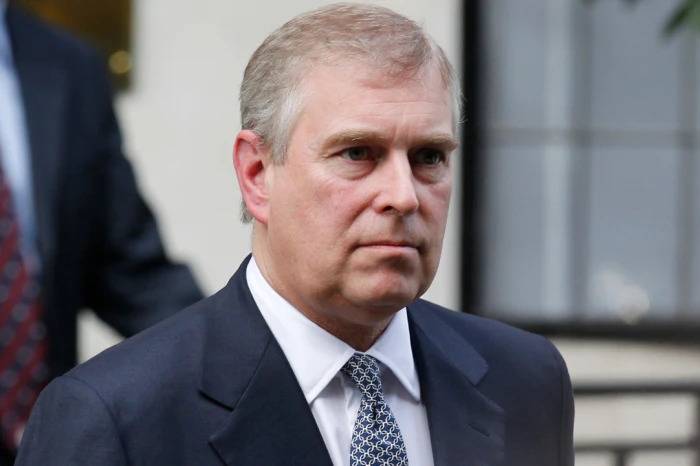Poll: Rich hogging political clout seen driving PH inequality
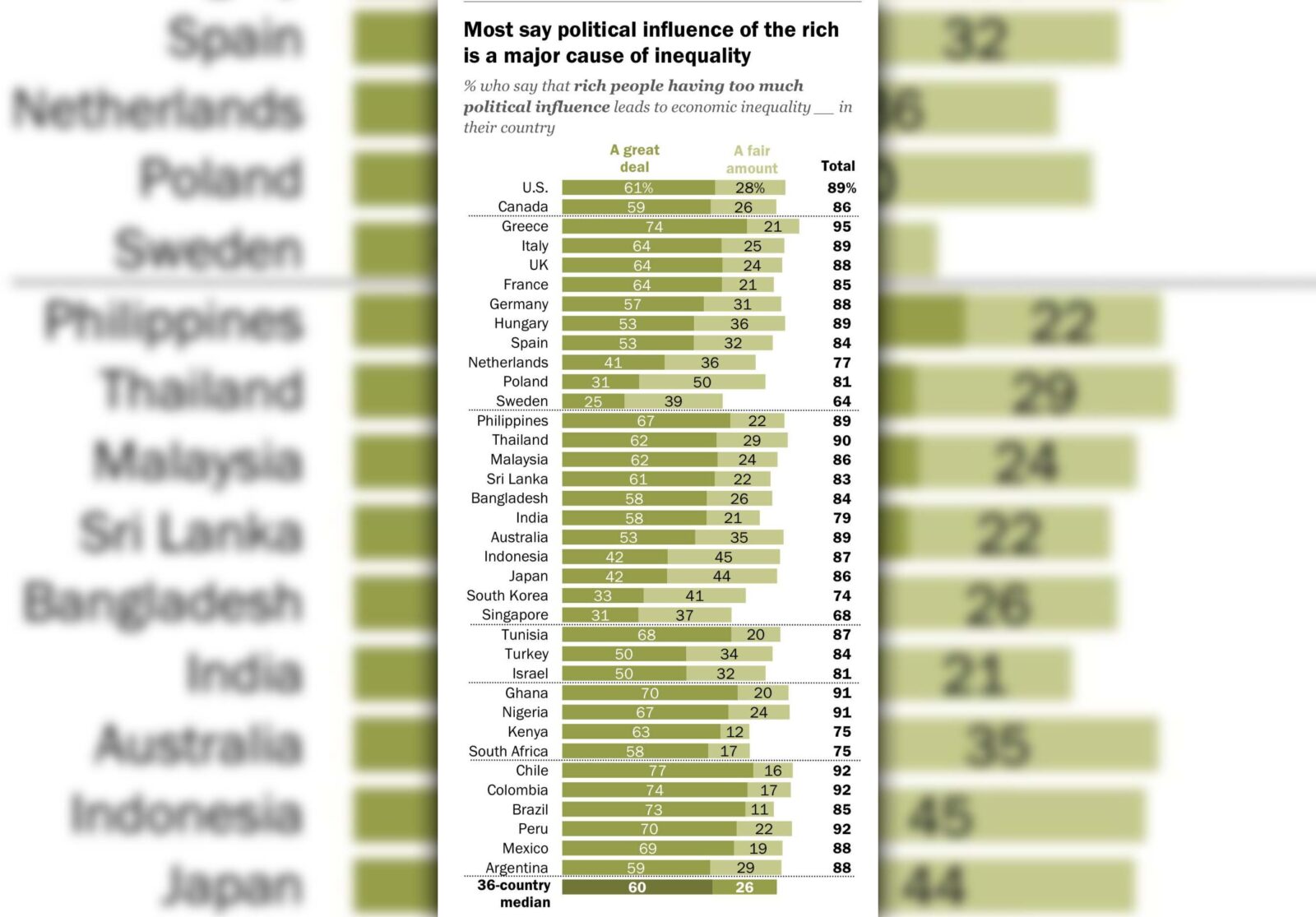
In 2022, the year a new administration took over, the World Bank (WB) came out with an important report on the Philippines. While there had been important gains in poverty reduction, WB had said that inequality in the country was still striking.
Thanks to high growth rates and the creation of more jobs outside agriculture before the pandemic, poverty in the country had fallen by two-thirds—from 49.2 percent in 1985 to 16.7 percent in 2018.
By 2018, WB said the middle class had expanded to nearly 12 million people and the economically secure population had risen to 44 million.
Yet inequality remained high. With an income Gini coefficient of 42.3 percent in 2018, the Philippines ranked as the 15th “most unequal” out of 63 countries for which data were available. That level of inequality was second only to Thailand in East Asia.
Of course, a lot has happened since then. After the once-in-a-lifetime pandemic wiped out years of progress in poverty reduction, the Philippines continues to pick up the pieces and fix the ugly economic scars left by the health crisis. The country is also halfway through the term of President Marcos, whose government inherited an economy that was healing from the onslaught of the virus.
Interestingly, results of a new survey by Washington-based nonpartisan fact tank Pew Research Center done in spring 2024 show how Filipinos perceive inequality in the postpandemic era, as well as the intersection of wealth and politics at home and abroad.
Politics
Pew’s analysis focuses on public opinion of inequality and its contributing factors in 36 countries, including the Philippines. At the same time, the report also explores views of children’s financial future and the economic system reform in each country.
Survey data reveal that 74 percent of respondents in the Philippines want major changes to the economic system. This, as 52 percent of Filipinos believe that the gap between the rich and the poor is a “very big problem” in the country, close to the 36-country median of 54 percent.
Pew says 89 percent of those polled in the Philippines perceive that the main cause of inequality in the country is “too much political influence” of rich people.
The next top contributor to economic inequality in the Philippines, according to the Pew survey, is the string of problems with the education system (51 percent). This is followed by people having to work harder than others (37 percent), people being born with more opportunities than others (33 percent), and robots and computers replacing humans in certain jobs (35 percent).
Interestingly, Pew says 27 percent believe that discrimination against racial or ethnic minorities greatly leads to a wealth gap in the Philippines, the lowest rating given by respondents in the country.
Zooming out, Pew says that a median of 54 percent of adults across the 36 nations surveyed say the gap between the rich and the poor is a very big problem in their country. Another 30 percent say it is a “moderately big” problem.
According to a global median of 60 percent, rich people having too much political influence contribute a great deal toward economic inequality. The survey also finds deep global anxieties about the economic future and a strong desire for economic reform.
Bright side
Despite the lingering wealth gap in the Philippines, there are still some streaks of encouraging data in the Pew survey.
Pew finds that 70 percent of respondents here believe that children in the country will be better off financially than their parents when they grow up.
That is an optimistic view compared with the pessimistic global median of 57 percent who expect the next generation to be worse off financially someday.
“In many countries, there is more economic pessimism today than before the COVID-19 pandemic—which hurt many people economically,” the report says.
“In 15 of 31 countries where trends are available, the share of the public who thinks children will be worse off financially than their parents is higher today than in prepandemic surveys,” it adds.













